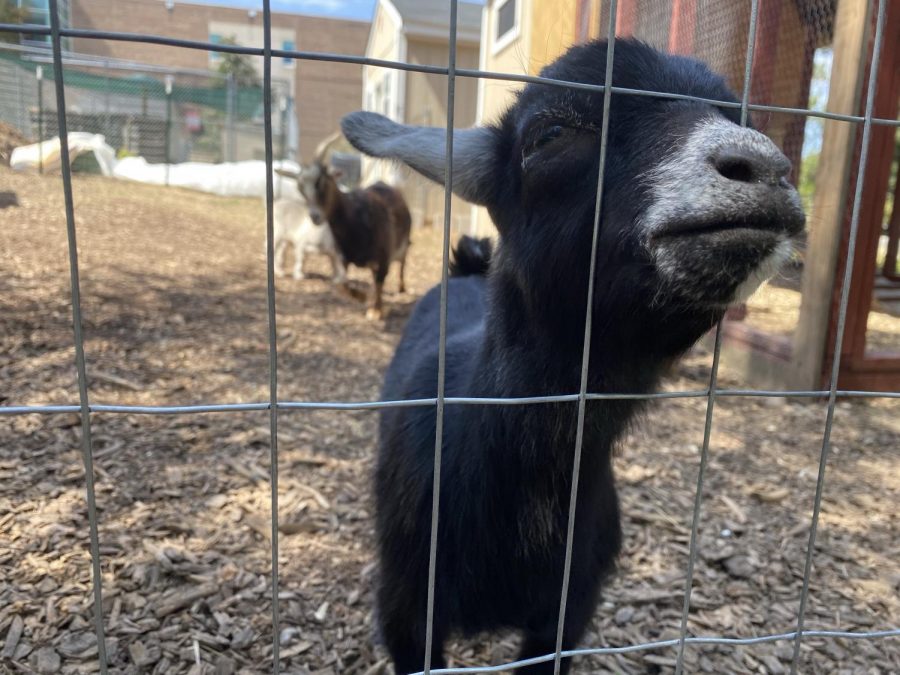Ag program creates a hands-on experience amid the pandemic
One of the new-born goats at Wakefield.
April 19, 2021
The pandemic has created ripples of change throughout every part of life from work to sports to getting groceries. One area that many people don’t think about is how hands-on classes and clubs were affected by the pandemic and the move to virtual learning.
A giant shift occurred with the ag program — Agricultural Education — and Future Farmers of America (FFA). Both are agricultural programs, while the ag program consists of classes that are affiliated with the North Carolina Farm Bureau. The ag program teaches students how to be farmers, but also trains tomorrow’s scientists, nutritionists, teachers and so much more. FFA is very similar but involves club meetings rather than classes.
Classes and clubs like these involve students working with their hands in a different environment than a classroom, and despite the challenges of today’s socially distanced world, students have been still getting a well-rounded education.
“Even though we’re in virtual learning, there are still a wide array of activities and programs that students can participate in, learn, and have fun,” said Joy Othoo, junior and FFA officer.
Not only have there been virtual opportunities for students but also hands-on projects for students to work on at home, such as the incubator initiative.
“Since students weren’t able to get hands-on experience Jodi Riedel and myself thought it would be a great idea to have students implement what they were learning in class at home,” said Kelley Foster, advisor and teacher of the agriculture program at Wakefield High.
The incubator initiative was thought up by the teachers of the ag program at Wakefield High School, Jodi Riedel and Kelley Foster, to bring agriculture into student’s homes during COVID-19.
“We got the incubators from a friend of mine at Garner High School, who was in contact with the Poultry Extension Agent at NCSU,” said Jodi Riedel. “The agent received a grant and purchased over 50 incubators that are loaned out.”
The creative thinking of the teachers combined with the generous donations made by various groups, students were able to make the best of their time at home.
“Many students loved doing this so much that they even decided to keep their chicks that they have hatched,” said Amelia Peck, junior and FFA officer.
Another experience the ag program gave students was the ability to raise baby goats. The program had a male buck come from Athens Drive FFA students in September and stay until early December. He impregnated the school’s two goats, who are sisters. They had a 5-month gestation period. Students in animal science actually got to see the births of the four baby goats. Students learned how to milk the goats and do proper health checks once back on campus.
“My level two and three students learn about gestation and parturition — pregnancy and birthing and being able to have the goats get pregnant was a way for my veterinary students to see something ‘unique’ that they otherwise wouldn’t have experienced,” said Foster. “Students will also get to experience goats from birth to adulthood which in itself is an awesome experience.”
Both these bigger projects have been enjoyable for students as well, not only to learn but also as a life experience that they will have forever. The new chicks are a wonderful addition to students’ homes, and the goats add so much to the school’s environment.
“[One of the baby goats] is already so kind and playful with students,” said Othoo. “He’ll nibble on peoples’ clothing and hair and he’ll jump into peoples’ arms like a puppy!”









